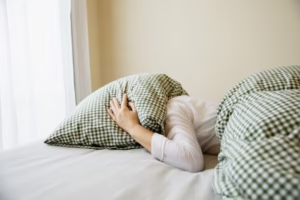Understanding Sleep Conditions and Their Treatments A Comprehensive Guide
sleep is a fundamental aspect of mortal health, playing a vital part in physical and internal well- being. Yet, millions of people worldwide struggle with sleep conditions, leading to patient fatigue, dropped productivity, and a variety of health problems. In this composition, we’ll explore common sleep conditions, their causes, symptoms, and treatment options to help you get the peaceful sleep you earn.
What Are Sleep conditions?
A sleep complaint refers to any condition that affects the quality, timing, or duration of sleep. These conditions can affect in sleep deprivation, making it delicate to stay awake, concentrate, and function throughout the day. Some of the most common sleep conditions include insomnia, sleep apnea, restless leg pattern, and insomnia.
Common Sleep conditions and Their Symptoms
1. insomnia
insomnia is one of the most wide sleep conditions, affecting millions of people worldwide. It’s characterized by difficulty falling asleep, staying asleep, or waking over too early and not being suitable to get back to sleep.

Symptoms
Difficulty falling asleep or staying asleep Waking up constantly during the night Feeling tired or unrefreshed upon waking Day fatigue, irritability, or difficulty concentrating Causes
Stress, anxiety, or depression Poor sleep hygiene( e.g., irregular sleep schedule) Medical conditions or specifics Caffeine, nicotine, or alcohol use Treatment
Cognitive Behavioral remedy for Insomnia( CBT- I) A structured program aimed at changing studies and conduct around sleep. Sleep Hygiene Improvements Creating a comforting bedtime routine, reducing screen time, and optimizing the sleep terrain. specifics Anodynes or sleep aids may be specified on a short- term base for severe insomnia, though these come with risks of reliance.
2. Sleep Apnea
Sleep apnea is a potentially serious complaint where breathing constantly stops and starts during sleep. The most common form is obstructive sleep apnea, where the muscles in the throat relax excessively during sleep, blocking the airway.

Symptoms
Loud snoring heaving for air during sleep devilish day doziness or fatigue Morning headaches or dry mouth Difficulty concentrating Causes obesity or spare weight Age( more common in aged grown- ups) Alcohol use or drowsy specifics Anatomical factors, analogous as enlarged tonsils or a large lingo Treatment
CPAP( continuous Positive Airway Pressure) remedy A device that keeps the airway open by delivering a constant flux of air through a mask worn during sleep. life Changes Weight loss, quitting smoking, reducing alcohol consumption, and sleeping on your side. Surgery In severe cases, surgery may be necessary to remove spare kerchief or correct anatomical issues.
3. Restless Leg Pattern( RLS) Restless leg pattern is a neurological complaint that causes an inviting appetite to move the legs, constantly accompanied by uncomfortable sensations. This generally occurs when a person is at rest, especially in the evening or at night.
Symptoms
An willful appetite to move the legs, constantly described as a crawling or jingling sensation Symptoms worsen when lying down or sitting still Relief from movement, analogous as walking or stretching Difficulty falling or staying asleep due to the discomfort CausesIron insufficiency or anemia gravidity( especially during the third trimester) habitual conditions like diabetes, order failure, or Parkinson’s complaint Family history of RLS Treatment Iron Supplements If low iron situations are linked, taking iron supplements may help palliate symptoms. specifics Dopamine agonists, anticonvulsants, or certain pain relievers may be specified to relieve symptoms. life Changes Stretching exercises, maintaining a regular sleep schedule, and avoiding caffeine or alcohol before bed.
4. Wakefulness
Wakefulness is a habitual neurological complaint that causes extreme day doziness and unlooked-for sleep attacks. People with insomnia may fall asleep suddenly at any time of the day, indeed in the middle of an exertion.
Symptoms
devilish day doziness, indeed after a full night’s sleep unlooked-for, willful sleep attacks Cataplexy( a unlooked-for loss of muscle tone, constantly touched off by strong passions) Sleep paralysis( the incapacity to move or speak while falling asleep or waking up) fancies during sleep transitions Causes heritable factors or family history Brain abnormalities affecting the regulation of sleep- wake cycles Autoimmune response that attacks the brain’s hypocretin- producing cells Treatment
specifics instigations to help manage day doziness, and antidepressants or sodium oxybate to manage cataplexy. Behavioral remedy rehearsing listed naps throughout the day can help manage devilish doziness. life acclimations espousing a harmonious sleep schedule and creating a comforting bedtime routine. When to Seek Professional Help still, it’s important to consult a healthcare professional, If you’re passing patient sleep difficulties that affect your quotidian life. multitudinous sleep conditions, analogous as sleep apnea and insomnia, can lead to severe complications if left undressed. A sleep specialist can conduct assessments analogous as sleep studies or recommend treatments that can significantly meliorate your quality of life. Conclusion Sleep conditions can have a profound impact on your health, but with the right knowledge and treatment, they can be managed effectively. However, it’s essential to seek professional help and follow recommended treatments to meliorate your sleep quality, If you’re floundering with any of the conditions mentioned. Prioritizing good sleep hygiene, managing stress, and making life changes can also significantly enhance your overall well- being.
Flash back, a good night’s sleep is n’t just a luxury it’s a vital element of a healthy life.
fresh Tips for Better Sleep
Stick to a regular sleep schedule, indeed on weekends. produce a calm, dark, and cool sleep terrain. Avoid heavy refections, caffeine, and nicotine close to bedtime. Practice relaxation ways like deep breathing or contemplation before bed. still, do n’t stagger to reach out for help and take the necessary way toward better sleep, If you’re floundering with any of these sleep conditions.
